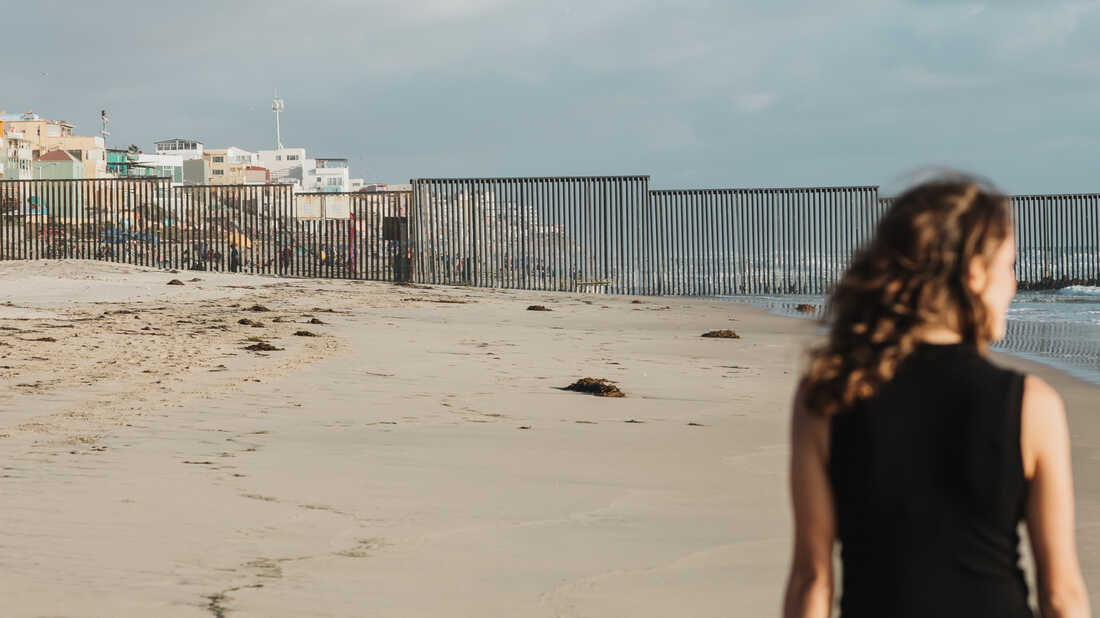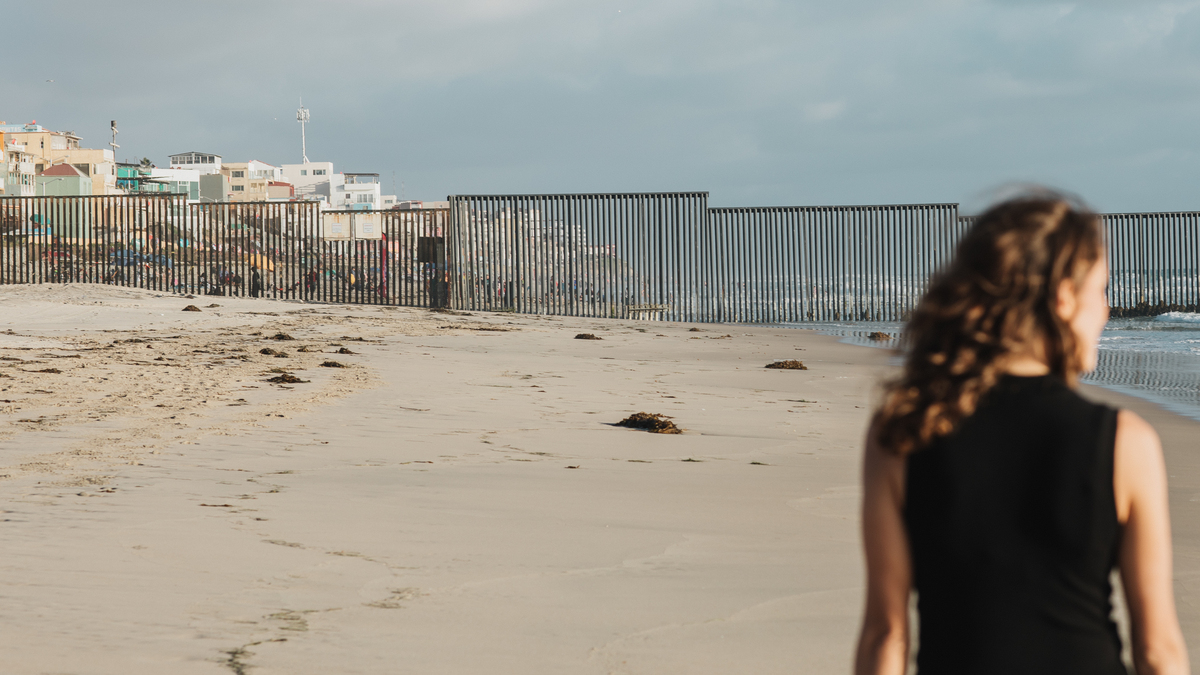
Jean Guerrero visits the US-Mexico border fence in Imperial Beach (San Diego County) in 2018, a few minutes from her childhood home. Stacy Keck/Jean Guerrero hide caption

Jean Guerrero visits the US-Mexico border fence in Imperial Beach (San Diego County) in 2018, a few minutes from her childhood home.
Stacy Keck/Jean GuerreroYou introduce yourself and then someone mispronounces your name. At that point you have to decide if you correct them or let it slide.
For many people from immigrant communities, this has been a lifelong experience. And sometimes, it's about more than mispronunciation, it can signal exclusion and disrespect. Some people even change their names in order to fit in more easily and not be "othered."
For years, LA Times columnist, Jean Guerrero, let people say her name without rolling their r's, the way it would be said in Spanish. But after becoming the target of MAGA trolls online, she decided to reclaim the proper Spanish pronunciation.
Email us at
This episode was produced by Eliza Dennis. It was edited by Jeanette Woods. Additional content in this episode from Anjuli Sastry Krbechek, Diba Mohtasham and Julia Furlan. Our executive producer is Natalie Winston.

 Live Radio
Live Radio